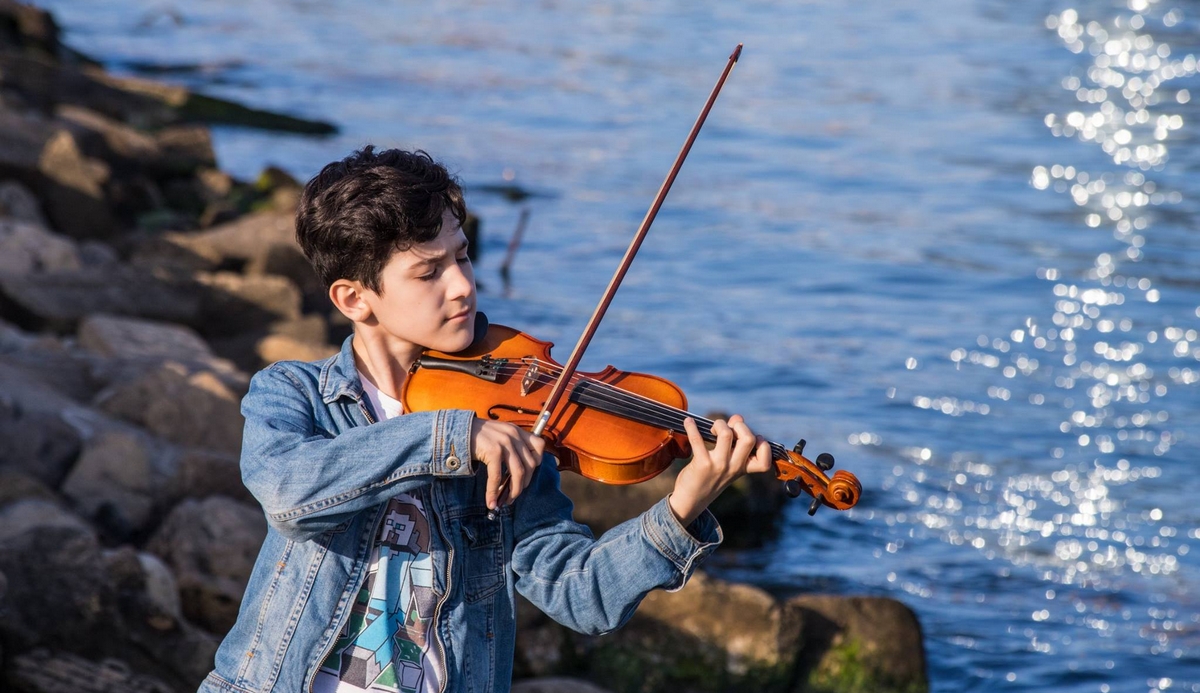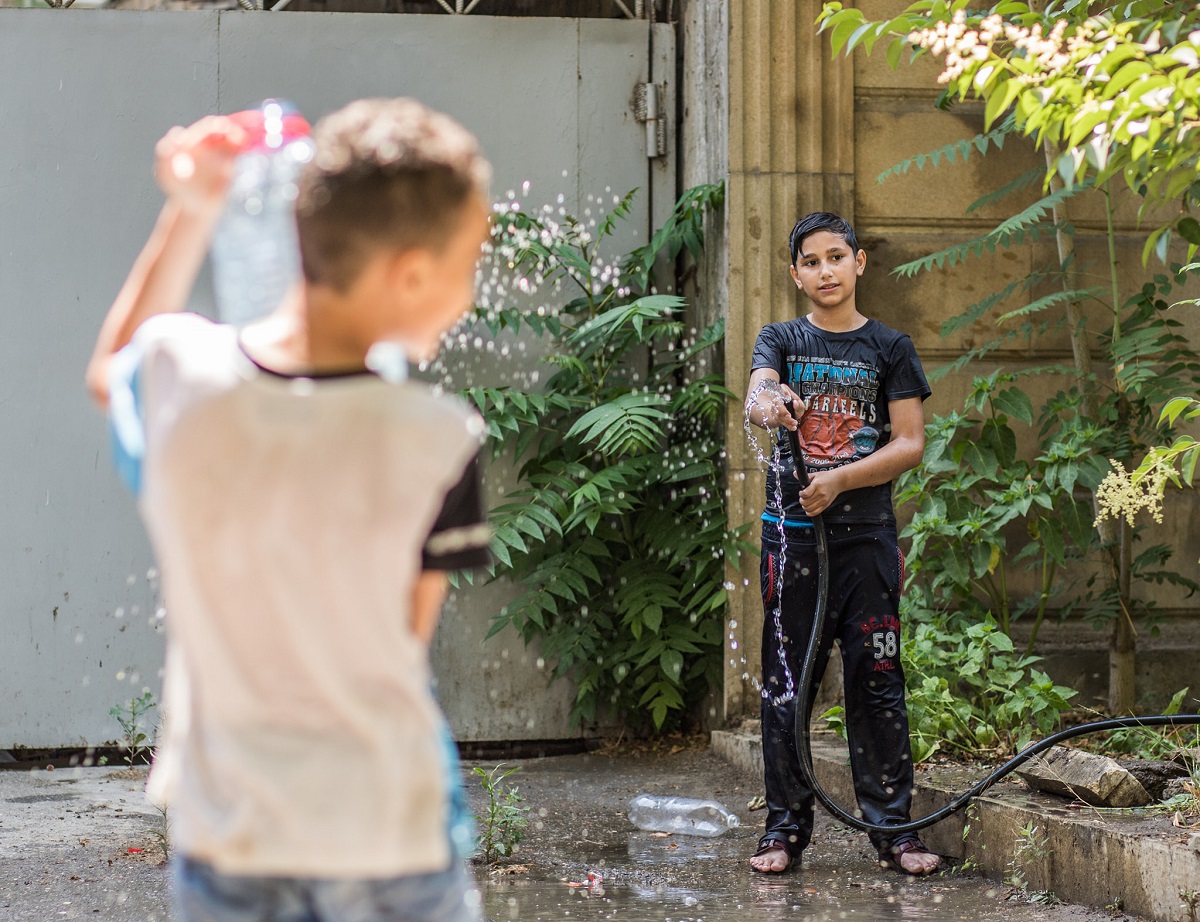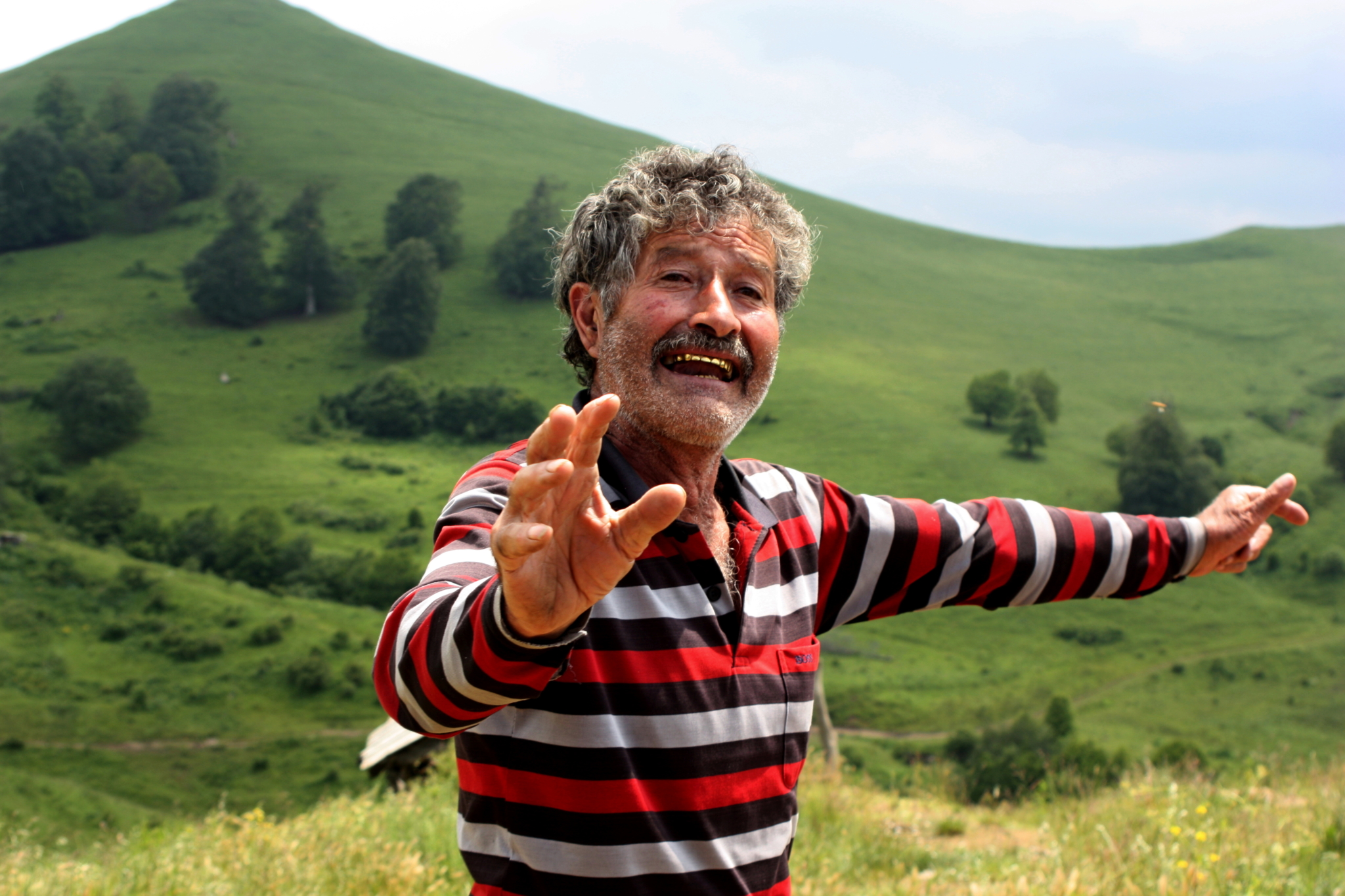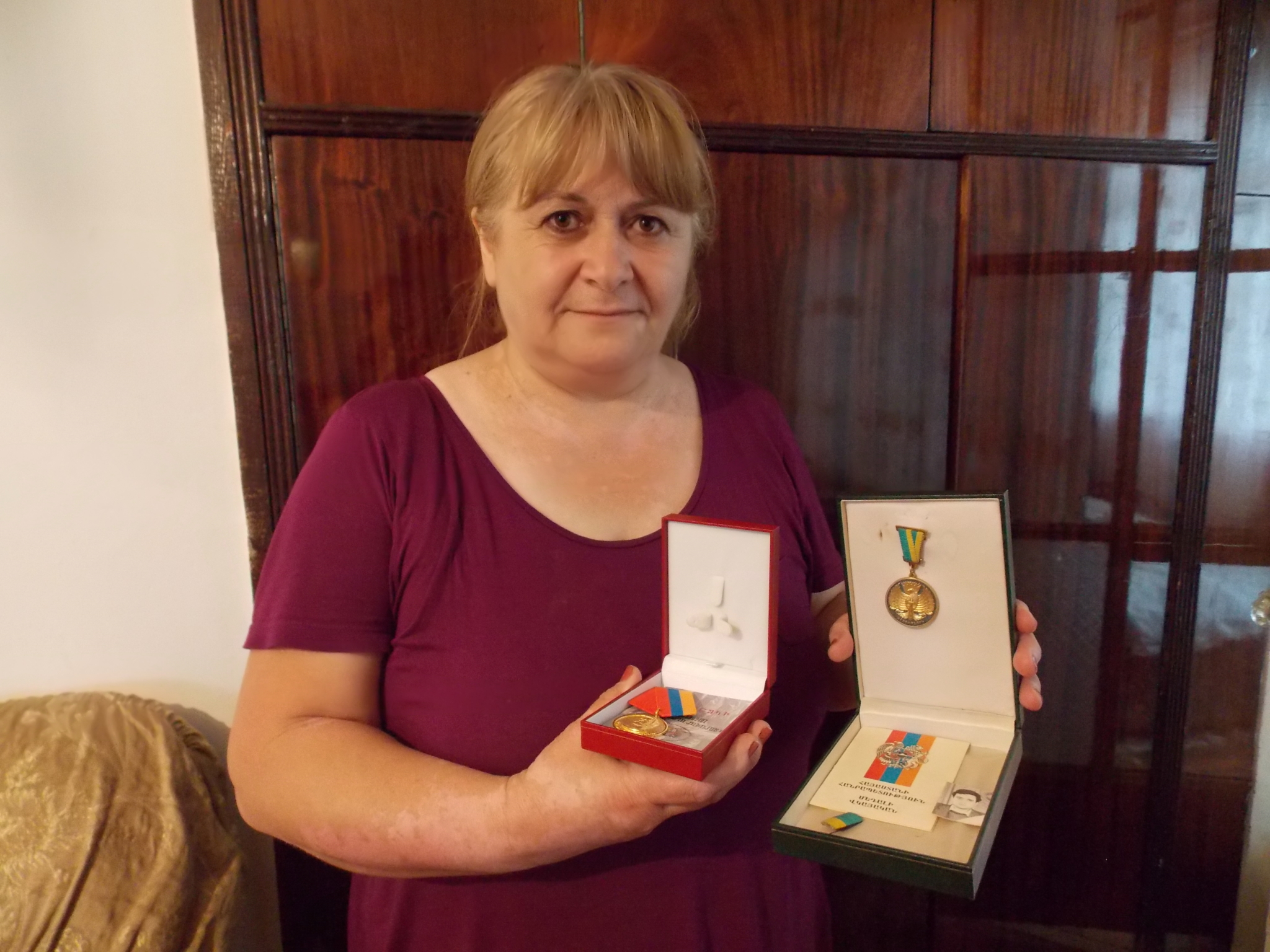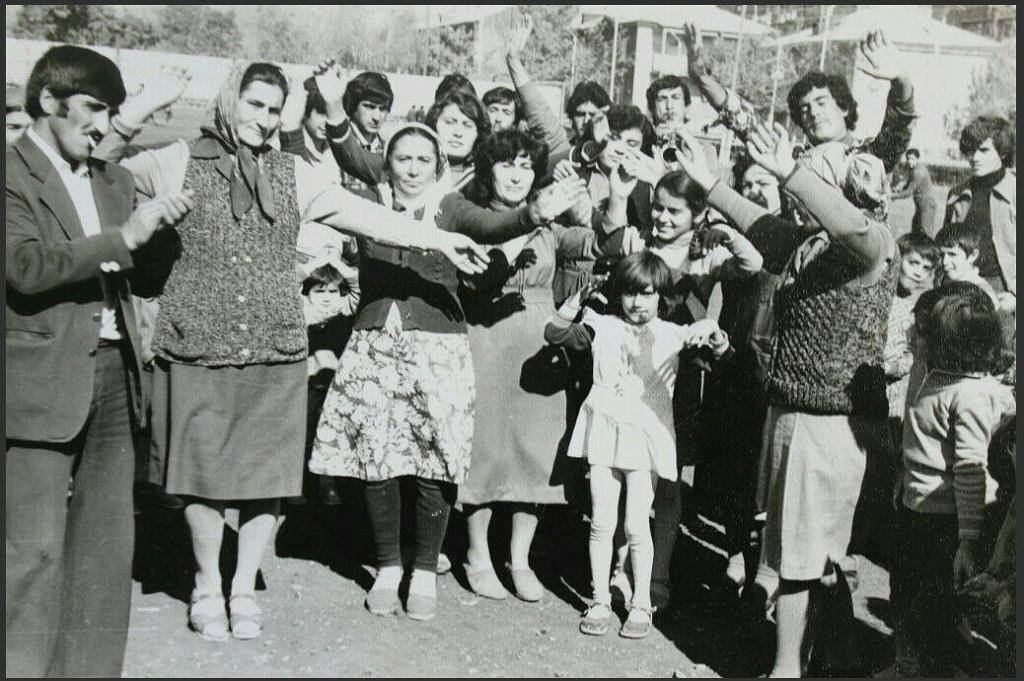Nagorny Karabakh: Her mother’s carpet, and twenty five years of waiting
To this day, 75-year-old Yeranik lives in the house where she was taken prisoner during the intense fighting of the Nagorny Karabakh conflict.
For twenty five years, Yeranik Sargsyan has shared her thoughts and suffering with a carpet. Woven by her mother, who has been declared missing, this is one of the few things left to remind Yeranik of her. At night, she hides from the pain beneath her mother’s blanket. Yeranik says she never wants to part with it. ‘This blanket is very dear to me,’ she explains, fighting back the tears. In her memory, the events of twenty five years ago rise up, once more. Yeranik tells of how, on 10 May 1992, the Azerbaijanis carried out an offensive near Agdam in the early hours of the morning. They attacked the villages of Aranzamin (now Varazabun), Sarnaghbyur (formerly Aghbulagh), Vardadzor (formerly Pirdzhamal) and Nakhichevanik in the Askeran Region.
 During the war, Varazabun village in the Askeran Region was twice occupied by the Azerbaijanis.
During the war, Varazabun village in the Askeran Region was twice occupied by the Azerbaijanis.
The village of Aranzami lies just seven kilometres from Askeran, and twenty five from Stepanakert. Many villagers managed to escape, yet eleven women remained. Yeranik had refused to leave her eighty-year-old mother, who had trouble walking. ‘The Azerbaijani tanks entered the village and there was a lot of shooting,’ Yeranik recalls. Yeranik, her mother and the remaining nine women hid in the basement of her house. The oldest woman, Zari, was eighty five, and Yeranik, the youngest, fifty one. ‘They found us in the basement and had us line up in the courtyard. The Azerbaijanis had a group of armed women with them who spoke Russian. They ordered us to climb into the back of a military truck,’ Yeranik recalls.
 Built in 2014, a monument to the missing shows the ten women who never returned to their native village.
Built in 2014, a monument to the missing shows the ten women who never returned to their native village.
In the centre of Varazaboun village, a monument created in 2014 honours all those who died or went missing in the conflict in Nagorny Karabakh. It shows ten women: Nadya, Parandzem, Zumbrut, Minavar, Araksya, Egine, Astkhik, Anya, Zari and Yeranik’s mother Arpenik. Of the eleven women taken captive, Yeranik was the only one to return home. According to the State Commission on Prisoners of War, Hostages and Missing Persons of the Nagorny Karabakh Republic, almost seven hundred people went missing during the conflict. Delegations from the ICRC in Yerevan and Baku and the organisation’s Mission in Nagorny Karabakh registered over four thousand five hundred missing persons in the conflict of 1992-1994. The ICRC Mission in Nagorny Karabakh registered over three hundred and seventy missing persons. The ICRC is now working with their families.
 At the age of fifty one, 75-year-old Yeranik Sargsyan was held prisoner for a day.
At the age of fifty one, 75-year-old Yeranik Sargsyan was held prisoner for a day.
The women were taken to the Azerbaijani village of Gëytepe, then to Barda and to Agdam. Yeranik lost hope that she would ever see her family again. Yet as fate would have it, among the Azerbaijani soldiers she recognised several whom she knew. ‘I recognised one of them and asked him if he was Raphael. The others were surprised and started asking how I knew him,’ Yeranik recalls. It was Raphael’s father Borya who saved her. She was allowed to return home on one condition. Upon her return, she was to find the body of a mechanic, who had driven the tank that had been hit on the outskirts of the village. If she handed the body over to the Azerbaijanis, they would release her mother and all the other women. When a car came to get her at dawn, Yeranik asked if her mother could come with her, but was refused. At her mother’s request, Yeranik brought her a glass of water, and promised that she would return. ‘My mother was against me going back to our village. She wept and begged me not to leave. She didn’t believe it would work out – she thought they would trick me and kill me. I can still remember her terrified expression,’ Yeranik recalls. At dawn the following day, Yeranik was taken to a farm near her village and released. Her captors expected her to return, she says. There were two men in the car: Alik and Yakov.
 Saddle bag belonging to Yeranik’s mother Arpenik, who had used it to go berry-picking in the fields.
Saddle bag belonging to Yeranik’s mother Arpenik, who had used it to go berry-picking in the fields.
‘As I got out of the car, I was afraid I would be shot in the back,’ Yeranik recalls. But she was not shot. On her way into the village, she met an Armenian with a rifle. Walking up to Yeranik, he began to question her. ‘I told him I was Armenian, but I could tell he did not believe me. Luckily for me, a young man who knew my son was passing by, and he told the man that he knew me. I was ready to return at once, to try to free the others,’ Yeranik recalls.
 The courtyard where the eleven women were captured. The house was one of the few that survived in the village as the Azerbaijanis torched many homes.
The courtyard where the eleven women were captured. The house was one of the few that survived in the village as the Azerbaijanis torched many homes.
‘I believed that, if I brought them that man’s body, they would free all the women.’ Yet Yeranik’s husband and relatives stopped her from returning. There was no point, her husband insisted. ‘If you go back, they will simply keep you there, and will not free anyone.’ ‘I am often tormented by the thought that I could have saved them, but failed to do so. I think that perhaps they would really have released all the women. Yet at the same time, a little voice inside me tells me that this is unlikely. And the body of the man that I was meant to bring was no longer there,’ Yeranik explains. The sons of two of the other women, Egine and Nadya, were also against Yeranik returning to her captors. ‘They won’t set anyone free,’ they told her. ‘If you go, they’ll simply take you prisoner again.’
 Silent and reserved, Yeranik’s husband Alesha Sargsyan fails to hold back the tears when the death of his son is mentioned.
Silent and reserved, Yeranik’s husband Alesha Sargsyan fails to hold back the tears when the death of his son is mentioned.
For Yeranik’s 85-year-old husband Alesha Sargsyan, recalling those times is painful. All he says is, ‘May those times never return.’ Yeranik’s youngest son Garik is the only member of the family who likes to recall the day that she returned home. Every year, on 11 May he prepares a special feast to mark what he calls his mother’s ‘second birthday’. ‘I was born on 7 November, but for many years now we have been marking my birthday on 11 May,’ Yeranik says. On 27 July 1993, a year after Yeranik’s experience, the couple lost their eldest son Armen. He was killed in the fighting near Ghalband. Yeranik’s family is one of the few to have stayed in the village. If prior to the war it had around a hundred and twenty inhabitants, today there are only forty.
 Yeranik says she will gladly accept her difficult living conditions, as long as there is peace.
Yeranik says she will gladly accept her difficult living conditions, as long as there is peace.
The Sargsyans live with their son and his family. Life is not easy for them. The second floor of their house still bears the traces of war, and they do not have the money to carry out repairs. As relatives of a missing person, the family was given a cow by the ICRC Economic Programme. Yeranik says that she has got used to the family’s difficult living conditions. The main thing, she says, is that there should be no more war, so they don’t have to flee, leaving everything behind.  A case which contained a missile left over from the war now serves Yeranik as a chest of drawers. ‘Some of them are good people,’ Yeranik says of the Azerbaijanis. ‘I have met kind people among them… War is hard. People are forced to kill each other in order to protect their own families.’ By the time I leave Yeranik’s home, darkness has fallen. Walking out with me, she notices a moving patch of light in the sky. ‘See that thing there? That’s an Azerbaijani drone. We see it almost every day. Can you hear the shooting? That’s our men, trying to bring it down. So how am I meant to believe that peace is possible?’ Yeranik wishes for peace, yet she cannot imagine it: she says neither Karabakhis, nor Azerbaijanis are ready. In 2014, the ICRC launched a project to collect biological specimens with DNA from the close blood relatives of missing persons. Yeranik’s family were among those who submitted specimens. So far, three hundred and eighteen relatives of a hundred and ten missing persons have submitted biological specimens for the project. ‘We’re doing it so that the biological specimens can help us to identify relatives as more bodies are discovered and exhumed,’ says Eteri Musayelyan from the Information Department of the ICRC Mission in Nagorny Karabakh.
A case which contained a missile left over from the war now serves Yeranik as a chest of drawers. ‘Some of them are good people,’ Yeranik says of the Azerbaijanis. ‘I have met kind people among them… War is hard. People are forced to kill each other in order to protect their own families.’ By the time I leave Yeranik’s home, darkness has fallen. Walking out with me, she notices a moving patch of light in the sky. ‘See that thing there? That’s an Azerbaijani drone. We see it almost every day. Can you hear the shooting? That’s our men, trying to bring it down. So how am I meant to believe that peace is possible?’ Yeranik wishes for peace, yet she cannot imagine it: she says neither Karabakhis, nor Azerbaijanis are ready. In 2014, the ICRC launched a project to collect biological specimens with DNA from the close blood relatives of missing persons. Yeranik’s family were among those who submitted specimens. So far, three hundred and eighteen relatives of a hundred and ten missing persons have submitted biological specimens for the project. ‘We’re doing it so that the biological specimens can help us to identify relatives as more bodies are discovered and exhumed,’ says Eteri Musayelyan from the Information Department of the ICRC Mission in Nagorny Karabakh.
 A carpet woven by Yeranik’s mother
A carpet woven by Yeranik’s mother
Yeranik says she has stopped waiting for her mother to return. ‘There is no hope now. My mother was born in 1912.’












